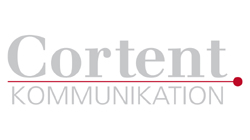The German Mittelstand
The law safeguarding small shareholders is stifling crowdinvesting

Last November’s legislation devised to protect small shareholders was a high-wire act. It was supposed to extend the umbrella protecting investors against the irregularities of the “grey capital market” but not, however, deprive SMEs and smaller companies in general of the possibility of obtaining funding. Bernhard Rohleder, chief of BITKOM, has expressed his opinion on the new law. He believes that the government has fallen short in the difficult task it set itself, and the procedures for start-ups to obtain financing have to be made easier.
Experts on the issue feel that the new regulations could produce serious drawbacks for small companies who are seeking investment capital. Crowdinvesting – a relatively recent form of funding that has been resorted to by many SME-type start-ups – seems to have been the hardest hit. “Crowdinvesting-Monitor” points out that the 8.3 million Euros raised through platforms in the first half of 2014 was 60 percent more than in the same period of 2013. The crux of the matter is that companies seeking capital investment of 1 million Euros or over have to produce a so-called Security Prospectus at a cost of some 50 thousand Euros that prospective start-up companies have to pay up front, too. That’s a lot of money for somebody with a good idea and not much cash.
This new directive, however, extends the transparency requirement to crowdfunding of less than 1 million Euros. Individual investors can only put up 10 thousand for a project, and even then only by producing a declaration certifying possession of at least 100,000 Euros or declaring the non-intention of investing more than double the investor’s average net income. Failing this, the ceiling is a paltry 1,000 Euros per project.
Joschka Rugo, Head of PR of the Companista crowdinvesting platform thinks that the one million Euro maximum for exemption from having to produce the Security Prospectus is far too low. In his opinion, the improvements that the legislator is looking for heighten the risks that the venture capitalist has to deal with. If there’s not enough money to produce the brochure, you can’t collect more than a million Euros, and it remains to be seen whether that amount is enough to begin marketing a technological innovation . There is a danger that the start-ups will deliberately seek a lower investment, only to run dry before the marketing gets properly underway.
Our European neighbours have better options on offer for crowdinvesting. In Britain, the limit for brochure-free investments is 5 million Euros, and in France 4. If this recent form of investment is to flourish in Germany, legislation has to be streamlined. Innovative tools have to be made available to fund innovative ideas in order to foster the drive to create something that would be useful to Germany.















